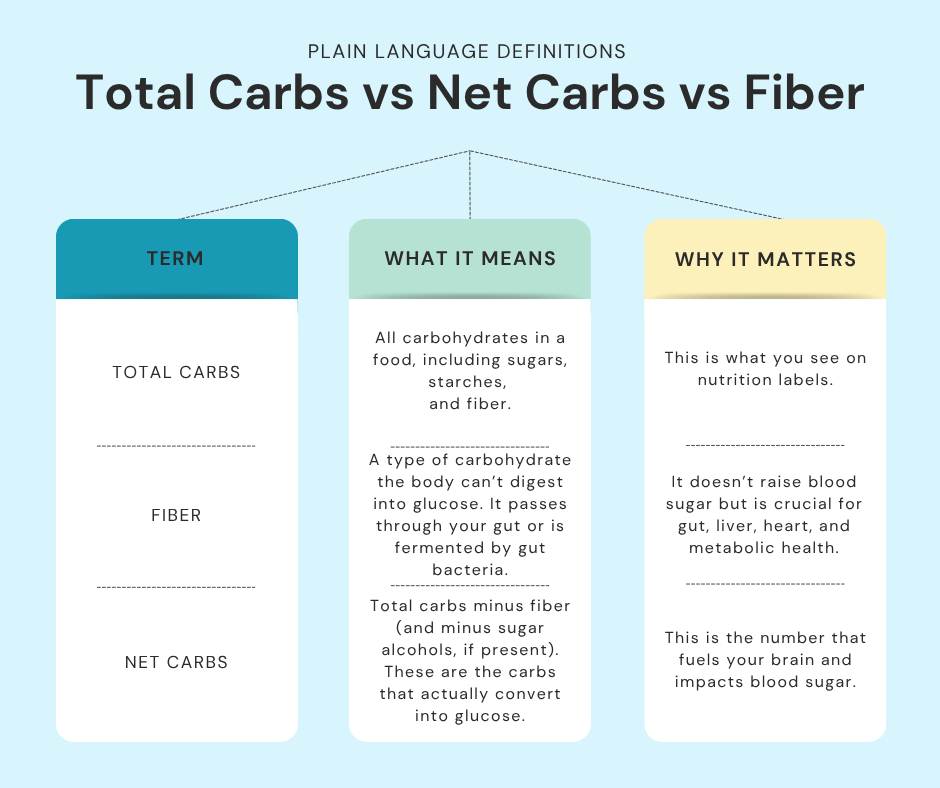🧠 Carbohydrates, Net Carbs, and Brain Fuel – What You Really Need to Know
1. Why Carbs Matter – Especially for Your Brain
Carbohydrates are the body’s and brain’s preferred fuel. When we eat carbs, they’re broken down into glucose — the primary energy source your brain runs on. The adult brain uses about 120–130 grams of glucose per day, which is why the RDA for carbohydrates is ~130 g/day. This is considered the minimum amount needed to keep your brain and nervous system fueled.
👉 If you consistently go below ~130 g/day, your body can adapt by producing ketones from fat to fuel the brain, but that’s a metabolic shift (as in ketogenic diets) — not necessary for most people aiming for optimal brain performance and longevity.
2. Total Carbs vs. Net Carbs vs. Fiber
Example:
1 cup black beans: 40 g total carbs – 15 g fiber = 25 g net carbs
✅ The ~130 g/day guideline refers to net carbs — the carbs that are digestible and provide glucose to the brain.
Whole vs. Refined Carbs – Quality is Everything
Whole carbs = veggies, fruit, beans, lentils, oats, quinoa, whole grains. They come packaged with fiber, vitamins, minerals, and phytonutrients.
Refined carbs = white bread, pastries, soda, processed snacks. They’re stripped of fiber and nutrients, digested quickly, spike blood sugar, and crash energy.
💡 Your goal: Get most of your ~130 g net carbs from whole, fiber-rich sources. You’ll naturally consume ~30–40 grams of fiber this way, which supports gut health and blood sugar balance.
In summary, your brain runs on about 130 grams of digestible carbs a day — that’s your glucose fuel. That doesn’t mean you need sugar or white bread. It means you want ~130 grams of net carbs from real, whole foods.
If you aim for 3 meals with ~40–45 g carbs and ~30 g protein, you’ll hit that brain fuel goal without even trying — and your fiber in-take will take care of itself.
